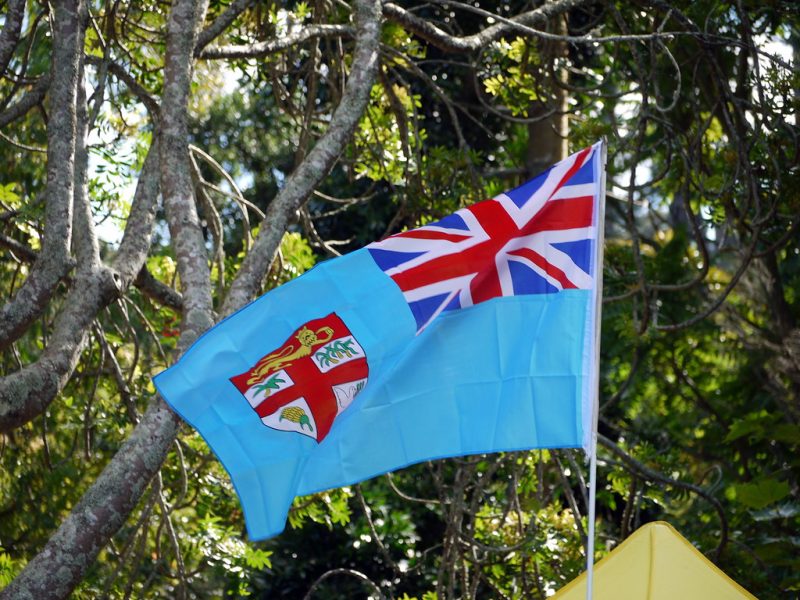Fiji finalized its prime ministerial elections on December 24th, with Al Jazeera reporting that Sitiveni Rabuka of the People’s Alliance Party (P.A.P.) has retaken the position for the first time since his election in 1992, allying with two other parties with small percentages of the vote to oust the FijiFirst party’s incumbent Frank Bainimarama. The National Federation Party had made a deal with P.A.P. prior to the election, and the B.B.C. reported on December 20th that the Social Democratic Liberal Party (S.O.D.E.L.P.A.) voted to back Rabuka after intense lobbying from both the P.A.P. and FijiFirst parties.
Fiji’s ability to democratically replace Bainimarama, who led the country’s most recent coup d’état in 2006 and has held power since then, maintaining the prime ministerial title through democratic elections in 2014 and 2018, is a good sign for its democracy. The FijiFirst party has also held a decreasing share of the vote since Bainimarama was first elected after his coup, which shows similar promise. However, Bainimarama’s concession was reluctant, and A.P. News reports that there has been controversy surrounding the vote counting; the leading candidate changed following a glitch in the online results app. The formerly leading Rabuka requested a halt until the military could certify the process and verify that Bainimarama had indeed overtaken him.
Bainimarama said the military had been deployed to maintain “law and order,” which Al Jazeera says Rabuka disputed, arguing that the government was “sowing fear and chaos.”
The fact that Rabuka has also led coups (two, in 1987) could be cause for concern. On the other hand, according to Erik Larson and Samuel Zalanga’s article, Political Power and Social Theory, Rabuka’s 1987 coup gave greater political power to native iTaukei Fijians and the Great Council of Chiefs. Bainimarama’s coup, meanwhile, was intended “to ‘clean up’ a ‘corrupt’ indigenous led government,” Dominic O’Sullivan explains in his article, Democracy, Power and Indigeneity.
O’Sullivan describes the formation of tensions between the iTaukei and indentured labour imported to the country from India during the late 19th to early 20th centuries in a separate article, published in the Australian Journal of Politics and History. The United States Institute of Peace (U.S.I.P.) asserts that this year’s elections have highlighted the persistent strain between the two groups, which, together, make up the vast majority of Fiji’s population.
Many countries have been invested in the election results, including the United States, which has taken a renewed interest in Fiji since China has started wooing countries in the Pacific. A New York Times article from Pulitzer finalist Damien Cave has detailed China’s investments in development in the Pacific Islands, as well as the security deals it’s reached in an effort to increase its access to areas of the ocean where the Islands have jurisdiction. In response, the U.S.I.P. reports, the U.S. hosted the first-ever U.S.-Pacific Islands summit, announcing greater American diplomatic presence and funding. Though this additional funding for the region could have benefits, such as improving infrastructure, superpowers’ motives are rarely altruistic. Both China and the United States are likely expecting diplomatic preference in return for their investments.
The outside interest has impacted the election. Rabuka has been portrayed as an anti-China candidate, the U.S.I.P. says, with Bainimarama being seen as more amenable to Chinese assistance given his “Look North” policy. On the flip side, the U.S., Australia, and New Zealand all cut off diplomatic relations with Fiji after Bainimarama’s coup in 2006, although relations were re-established after Bainimarama was democratically elected in 2014. This heightening of the connections between intensely divided domestic politics and global superpowers is less than ideal, prioritizing international priorities of geopolitical influence rather than clearly focusing on the wellbeing of those living in the country.
Given both the stark divide between Fiji’s populations and the country’s history of post-election coups, the most important thing now is to maintain a democratic government and ensure a smooth transition of power – particularly given the closeness of the race. But while these responsibilities largely fall to Fiji, other countries with historical and regional interests in the nation have an important role to play. Rather than focusing on how they can use this new government to increase their influence or how they might work to change the government to their own benefit, these countries ought to focus on how they might be able to maintain Fiji’s peace.
This role requires maintaining diplomatic relations with the new, democratically-elected government, as well as allowing these relationships to be guided by what Fiji’s government itself believes the country needs, rather than focusing on the interests of international powers.
Additionally, if a coup is to occur, it is important to bear in mind how cutting off all relations affects the citizens themselves. Ceasing diplomatic relations with a coup government can send an important message against military governments, but also prioritizes foreign powers’ views over the interests of the country’s citizens. Cutting off aid directly affects the people living under this system, who may have little say in what form their government takes, worsening living conditions without necessarily helping to create any change.
Ultimately, foreign powers must work to support the people of Fiji in maintaining a form of government that is both functional for them and can prevent another coup. A stable, democratic Fiji is the best outcome for all parties.
- Chile Announces Plan To Search For The Pinochet Dictatorship’s Disappeared - November 6, 2023
- U.S. Healthcare Providers Sue Over Threats To Prosecute Out-Of-State Abortions - October 11, 2023
- Beating Projections: Anti-Corruption Candidate’s Unexpected Success Provides Hope For Guatemala - August 2, 2023


